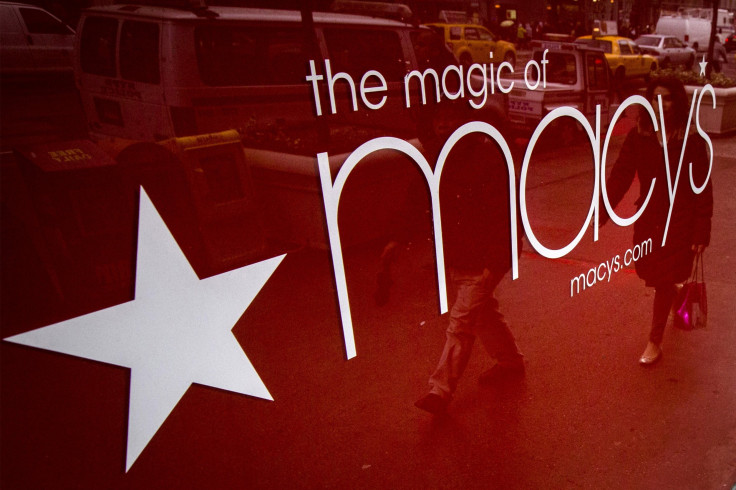What's The Future Of Retail? Macy's Thinking Outside The Mall To Recover From Coronavirus Sales Slump
KEY POINTS
- Some malls are expected to close as a result of the coronavirus while others plan to convert retail space to more experiential venues
- Macy's already had planned to close 125 stores through 2022 and slash its corporate ranks
- It's mall traffic is down as much as 48% compared to last year
Macy’s is thinking outside the mall to recover from the coronavirus pandemic, opening standalone stores and focusing on the vacuum created by the bankruptcies of Neiman Marcus, Barney’s and Lord & Taylor.
During its quarterly earnings call earlier this month, Macy’s CEO Jeff Gennette said the chain, which anchors numerous malls across the country and is in the midst of a three-year turnaround plan, is going to test small-format stores and it’s taking Bloomingdale’s with it.
Macy's Inc., which has a total of 771 locations, lost $431 million in the second quarter compared to an $86 million profit in the second quarter of 2019. Net sales were off $2 billion.
The move comes amid expectations that some shopping malls will close in the near future while others convert retail space to more experiential venues. Gennette said the company still is convinced the best malls in the country will thrive but sees potential in breaking out.
The redesigned format will be tested in Dallas, Atlanta and Washington.
The 142-year-old department store brand already is experimenting. It opened a free-standing Market by Macy’s store in the tony Dallas suburb of Southlake in May, offering a curated selection of high-fashion clothing and home decor, as well as a health and wellness section and in-store café a la Starbucks. A second store is slated for Dallas in 2021.
Gennette also promised free-standing stores for the company’s Backstage concept, which marries a traditional department store to an outlet to attract bargain hunters.
"We're going to learn in 2021 and 2022 on that, and we'll make adjustments as we need as we move forward," Gennette said.
Placer.ai reported that Macy’s is taking its cues from the likes of Kohl’s, but whereas Kohl’s is seen as more of a value retailer like T.J. Maxx, Macy’s plans to go upscale, targeting consumers who were more likely to frequent Barney’s.
Macy’s traffic has been down between 44.3% and 48.1% since the end of July compared with last year while Kohl’s traffic is down closer to a third. Macy’s was suffering even before the coronavirus pandemic hit and has been marketing furiously over digital platforms to make up ground.
Macy’s announced in February it would close 125 stores over the next three years and slash its corporate ranks. Gennette did not announce any plans to speed the process.
The restructuring, which aims to cut costs by $1.5 billion through 2022 – is to concentrate on four brands – INC, Alfani, Style & Co. and Charter Club – with an eye toward building sales to $1 billion, and to accelerate digital growth while building customer loyalty.
Chief merchandising officer Patti Ongman said the company plans to focus on younger consumers and private labels, expanding its market share in casual sportswear.
Digital sales brought in $5 billion last year, about 25% of total revenue.
The overall retail industry had been hit hard before the coronavirus and the pandemic has caused massive store closures, forcing companies to adjust. Global market research firm Coresight Research reports that 8,013 stores have closed in 2020, compared to 3,354 openings.
Brick-and-mortar retailers have been hit hard, despite some encouraging developments. A study released Thursday by the National Retail Federation and the investment bank PJ Solomon found that less than a third of retail companies paid at least 75% of June rent.
“We started to see some encouraging signs for the retail industry with June’s positive sales growth and within the backdrop of a gradually reopening economy,” said David French, NRF’s Senior Vice President of Government Relations. “The influx of stimulus-driven consumer spending and negotiations with landlords has helped keep retailers afloat. As retailers look ahead to cover rent and other expenses in the coming months, more federal government relief is needed to ensure the industry can continue to rebound and fuel the economic recovery.”

© Copyright IBTimes 2025. All rights reserved.






















